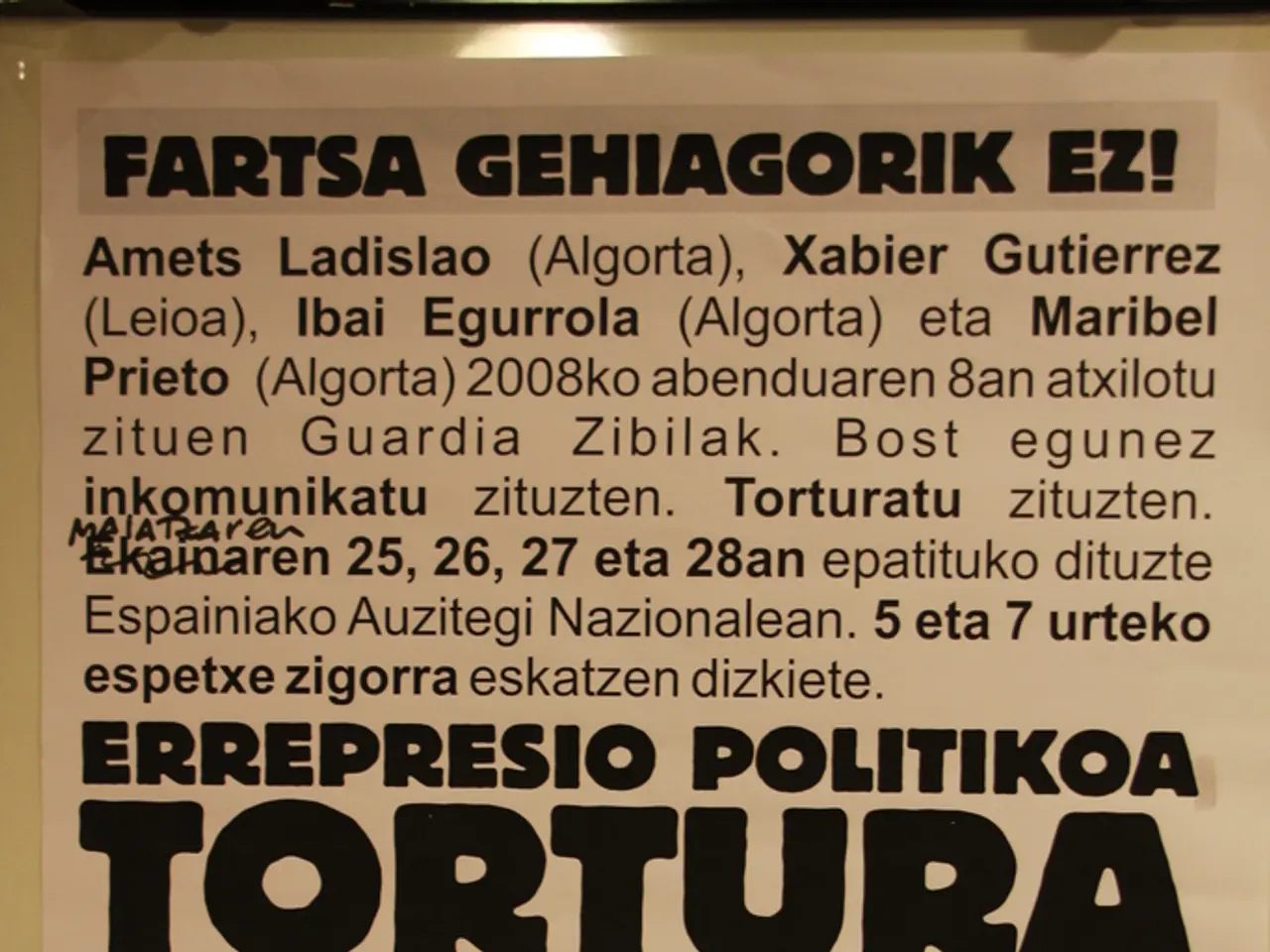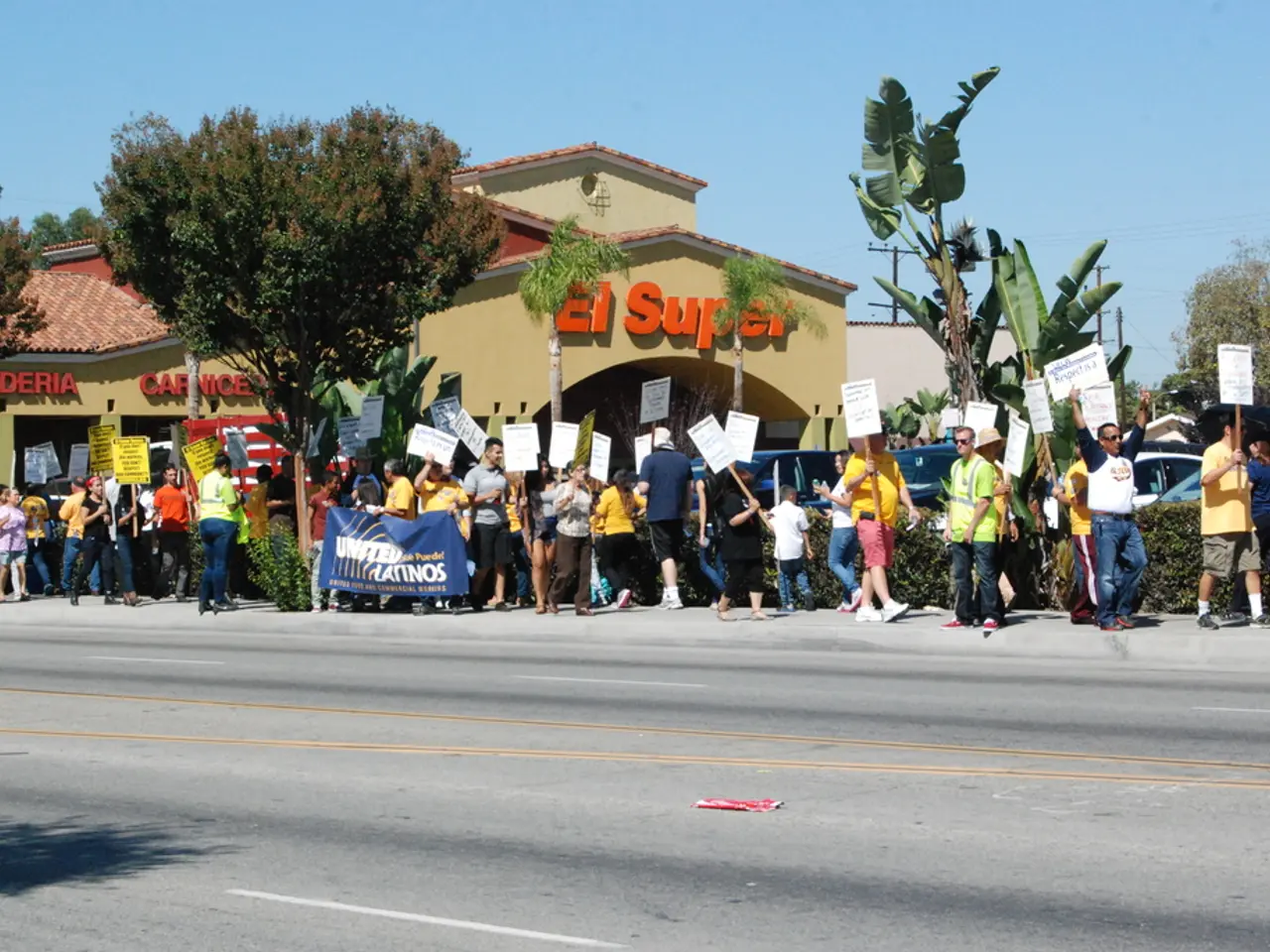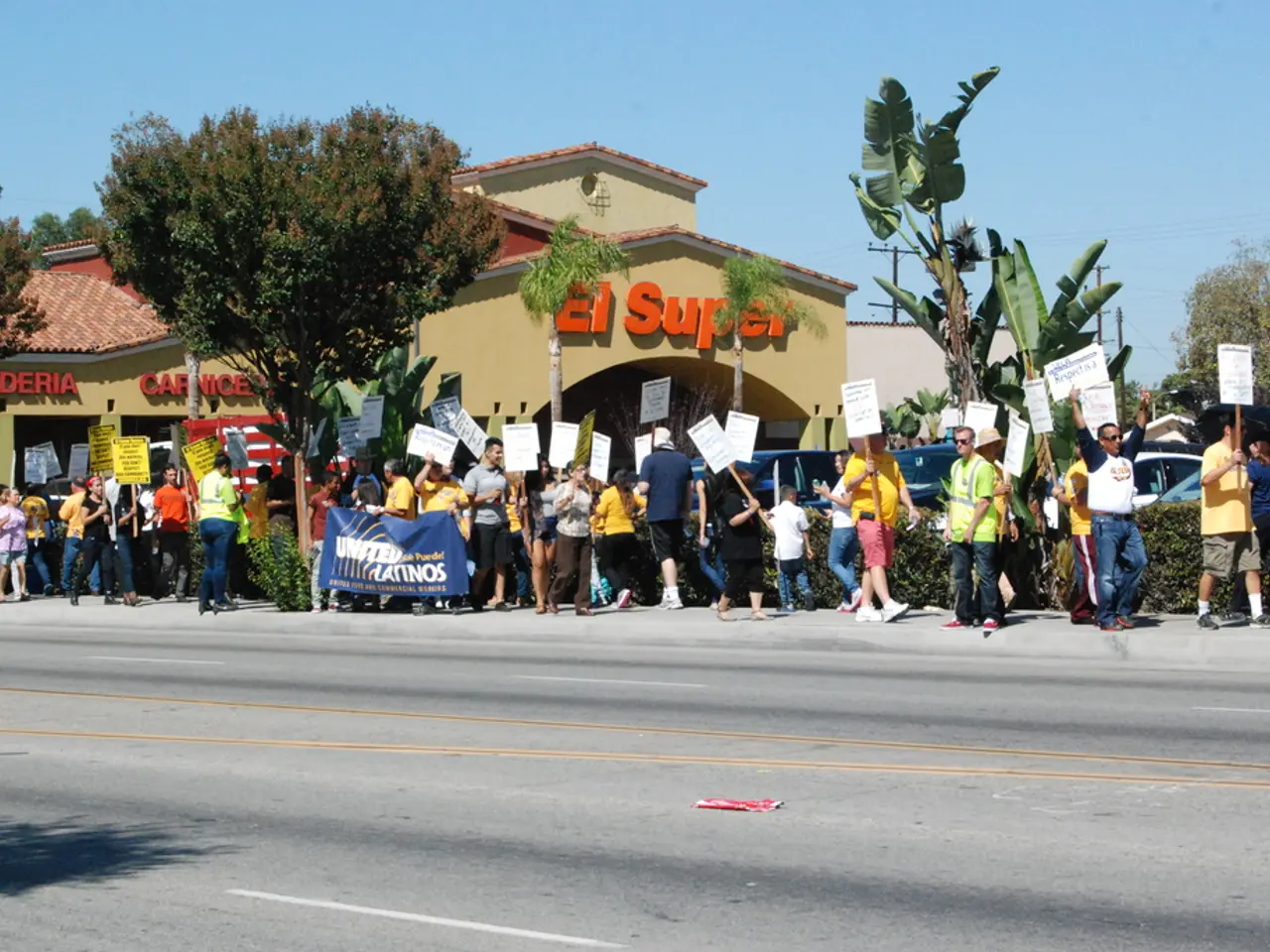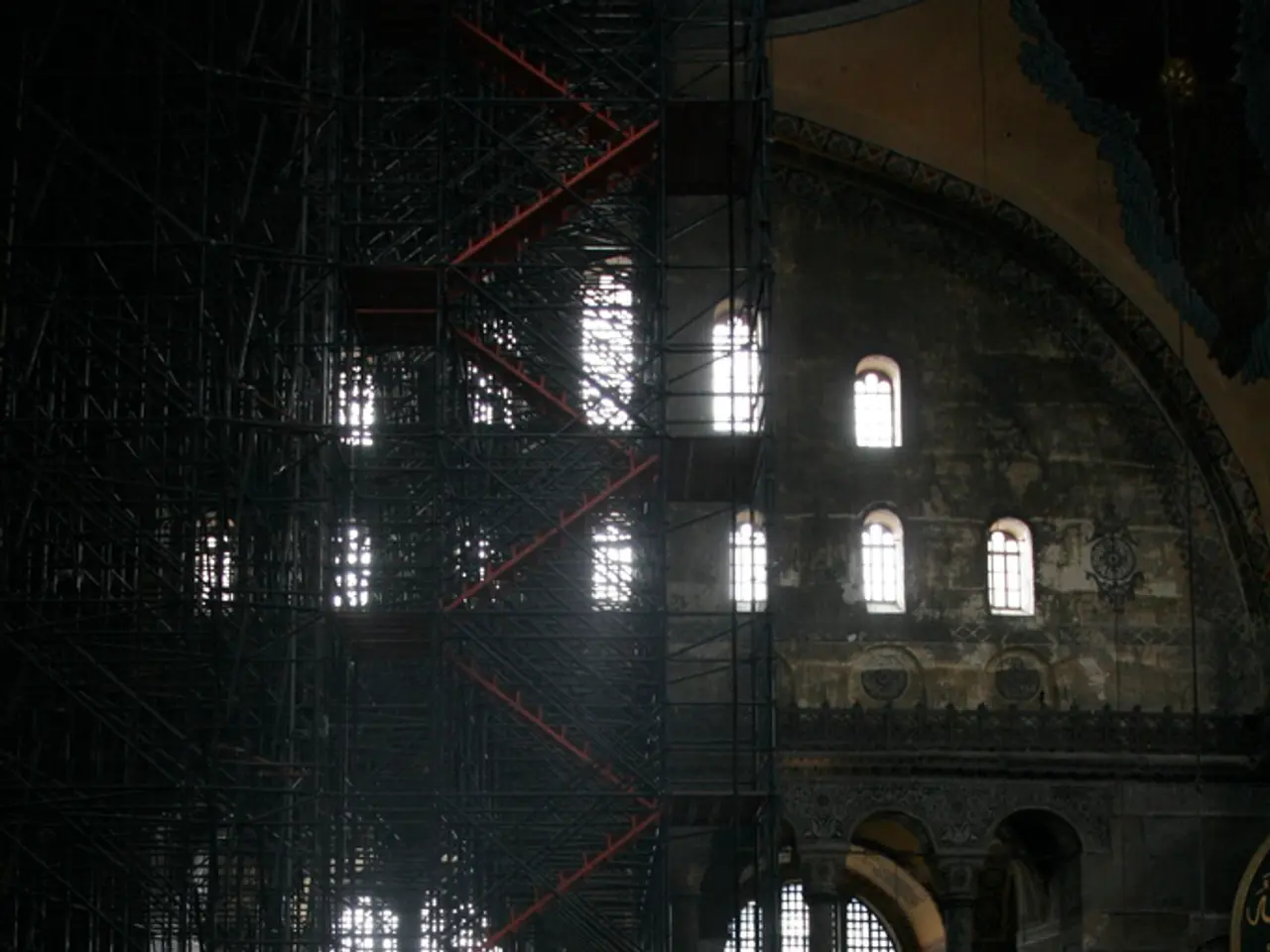International body Europarat voices concerns over Spain's sluggish approach to battling corruption - Spain's resistance in addressing and combating corruption faced criticism from the Council of Europe
The Council of Europe's anti-corruption watchdog, GRECO, has sharply criticised Spain for failing to fully implement any of the 19 anti-corruption reforms recommended since 2019. This criticism comes at a time when the Spanish government, led by Prime Minister Pedro Sánchez, is grappling with severe internal corruption scandals.
GRECO's report highlights a "lack of decisive action and tangible results" at the highest levels of power, including the central government and law enforcement agencies. Key issues identified include insufficient reforms on legal immunity for senior officials, weak regulation of lobbying, lack of transparency, and weak independence of oversight bodies.
The Spanish government is under significant pressure due to these revelations. Sánchez and his Socialist party (PSOE) are facing serious corruption scandals linked to their inner circle. One major investigation, known as the 'Koldo case', reveals alleged mafia-like schemes involving inflated contracts during the pandemic, money laundering through shell companies, and implicated high-ranking officials, including ministers.
Despite this, Sánchez appears politically resilient, continuing with his planned schedule amid growing critiques. However, the Europarliament has expressed concern about the lack of independence and separate budget of the Spanish agency for conflicts of interest.
In an effort to combat these issues, the Spanish Socialist Party has banned its members from using the services of prostitutes, with paid sex now punishable by expulsion from the party. The Spanish Ministry of Justice has stated that the Spanish evaluation of the fight against corruption has continuously improved since 2017.
However, the Ministry did not directly address the criticism from the Europarliament, which has identified pending reforms of the special criminal procedure for government members as a concern. The Europarliament's criticism comes as Spain continues its efforts to fight corruption.
Several high-profile individuals are involved in these corruption cases. Santos Cerdán, the former number three of Sánchez's party, has resigned due to corruption allegations. Both Santos Cerdán and José Luis Ábalos, a former Transport Minister, are involved in the corruption case. Additionally, investigations are ongoing against the brother and wife of Pedro Sánchez for abuse of power.
Attorney General Álvaro García Ortiz must appear in court, accused of disclosing confidential information from an investigation. Spain has partially implemented 16 out of 19 recommendations regarding the fight against corruption.
Spain has been asked to submit a report on the progress of the fight against corruption by the end of June 2026. The Council of Europe may increase pressure if no improvement is seen. Sánchez initially responded to resignation calls by presenting an anti-corruption plan in early July.
This paints a picture of persistent governance and corruption challenges in Spain, with international watchdogs pushing for reform, and the government, led by Sánchez, grappling with severe internal scandal implications. The future of Spain's anti-corruption efforts remains uncertain, but the pressure is on for meaningful change.
- The Spanish government, in light of the continuous criticism from both GRECO and the Europarliament, needs to reexamine its competition policy, as well as its general-news reporting, to address the lack of progress in implementing anti-corruption reforms and to ensure transparency and accountability.
- The ongoing corruption scandals in Spain, including the 'Koldo case' and the allegations against Santos Cerdán, José Luis Ábalos, and Pedro Sánchez's family members, highlight the need for robust competition policy, particularly in terms of oversight and the prevention of conflicts of interest, to combat the entrenched corruption within the Spanish community.








